NO REGRETS BETS
Lita Sands
The Health Pulse

A podcast on the latest data and AI trends in health care and life sciences.

- 2x
- 1.75x
- 1.5x
- 1.25x
- 1x, selected
- 0.75x
- 0.5x
- Chapters
- descriptions off, selected
- captions settings, opens captions settings dialog
- captions off, selected
This is a modal window.
Beginning of dialog window. Escape will cancel and close the window.
End of dialog window.
This is a modal window. This modal can be closed by pressing the Escape key or activating the close button.
This is a modal window. This modal can be closed by pressing the Escape key or activating the close button.
This is a modal window. This modal can be closed by pressing the Escape key or activating the close button.
This is a modal window. This modal can be closed by pressing the Escape key or activating the close button.
We're asking the hard questions, and our guests bring thought-provoking answers to help push us toward a healthier future.

How can data, AI and advanced analytics accelerate innovation in health care? Which new technologies hold the most promise? What are the biggest roadblocks to progress? How can we solve endemic problems?
Join us for The Health Pulse podcast series as we explore fresh perspectives on digital transformation in health care and life sciences.
You can access The Health Pulse podcast series on your favorite podcast platform by clicking on any of the icons below.
Have ideas for a podcast episode? Send your idea to our editorial team.

Season 5: Episode 10 People, Technology and the Journey to a Healthier Tomorrow
Lita Sands, Managing Director of Life Sciences at Deloitte, is passionate about how people and technology come together to create a healthier future.
In this episode, Sands explains to Host Alex Maiersperger why life sciences organizations must strengthen their relationships with health care and ensure data and analytics form the backbone of their companies.
According to Sands, technology is easy, while change management and the partnership between business and IT represent critical challenges.
When it comes to generative AI, Sands advises life sciences organizations to focus on what she calls “no regrets bets,” emphasizing the importance of a person in the loop.
Tune in to learn more.

AI = NEW ERA OF DISCOVERY
Dr. James Hildreth
Season 5: Episode 9 Teaching Medical Students about Equity and AI
Dr. James Hildreth, M.D., Ph.D., President and CEO of Meharry Medical College, is a passionate leader speaking about health equity, the power of AI in medicine and how aspiring physicians can be supported throughout their studies.
In this episode, Dr. Hildreth speaks about the influence of social determinants of health-on-health equity and offers advice on reducing inequities.
Host Alex Maiersperger and Dr. Hildreth discuss impactful AI use cases in health care, such as the documentation of notes from patient and physician interactions, so that physicians can focus their time on the patient.
Dr. Hildreth explains that AI can accelerate the discovery of disease causes, drugs and new interventions and that representation matters so that the datasets from genome sequencing also include people of African ancestry to ensure discoveries are representative of the diverse population and interventions are working.
Lastly, Dr. Hildreth shares his leadership experience in making medical school more affordable for aspiring doctors and the importance of exposure to technology and AI from an early age.

HEALTH INNOVATION: FROM VISION TO VALUE
Dr. Onyi Daniel
Season 5: Episode 8 Unlocking the Potential of AI in Health Care: A Vision for Change
Dr. Onyi Daniel, Sinai Health System Board Member and former Vice President for Data and Analytics Strategy at Highmark Health, is a passionate health tech leader who speaks about change management, AI use cases, health equity and the importance of responsible AI.
In this episode, Daniel shares her leadership experience and explains why it is critical that health care leadership can articulate the vision for technological change and define the associated value.
Host Alex Maiersperger and Daniel discuss emerging AI use cases in the health care industry, such as ambient listening or code generation, which can improve productivity and experience and reduce burnout.
Despite the infinite opportunities that new technologies bring, Daniel emphasizes the importance of upstream data collection, data quality, governance and inclusion, ensuring models and outcomes represent diverse populations to enhance health equity.

AI IN CLINICAL DEVELOPMENT
Dr. Greg Goldmacher
Season 5: Episode 7 AI, Imaging and the Race to Develop Therapies
Artificial intelligence holds tremendous potential for advancing clinical research.
On this episode of The Health Pulse podcast, host Alex Maiersperger connects with Dr. Greg Goldmacher, Associate Vice President for Clinical Research and Head of Clinical Imaging and Pathology at Merck.
Goldmacher identifies AI’s ability to automate advanced image measurements and improve insight into disease biology to support clinical development.
From a clinical radiology perspective, AI has the potential to improve diagnosis and opportunistic screening for earlier disease detection.
Goldmacher leaves us with his thoughts on the synergies needed within life sciences organizations to bring clinical development and data science teams together and move AI projects from idea to execution.

BETTER DATA = BETTER HEALTH
Dr. Joyonna Gamble-George + Dr. Karriem Waston
Season 5: Episode 6 Improving Health for All of Us
In a world where your zip code can have as great an impact on your health as your genetic code, how can we create a healthier future for everyone?
On this episode of The Health Pulse, we hear from Dr. Joyonna Gamble-George, a neuroscientist at the Yale School of Public Health, and Dr. Karriem Watson, Chief Engagement Officer of the National Institutes of Health’s All of Us Research Program, about how the All of Us program deepens our understanding of social determinants of health and addresses health care disparities.
The All of Us Research Program is a diverse, representative database composed of health data from more than 1 million people.
The program has 10,000 registered users of different backgrounds and skill sets and helps them better understand and solve health challenges.
Tune in to hear these health care research leaders reflect on the impact of precision medicine and how AI and other cutting-edge technology are advancing research and closing the digital divide.

CANCER CARE DISPARITIES TODAY
Dr. Otis Brawley
Season 5: Episode 5 A Conversation With an Oncology Legend
Dr. Otis Brawley, Bloomberg Distinguished Professor of oncology and epidemiology at Johns Hopkins University, is passionate about cancer research, prevention and high-quality cancer care.
He served as Chief Medical and Scientific Officer and Executive Vice President of the American Cancer Society from 2007 to 2018 and has published over 200 scientific articles.
In this episode, Dr. Brawley speaks about the impact of socioeconomic factors on cancer rates. Smoking, obesity and poverty are leading causes of cancer in the United States.
With cancer rates rising, Dr. Brawley emphasizes the importance of prevention and risk reduction, including healthy lifestyle choices such as regular exercise and a healthy diet.
Dr. Brawley is passionate about reducing cancer care disparities and saving lives with accessible, high-quality care, including appropriate screening, diagnostics and treatments. Having the correct data and technology in place can help to identify high-risk individuals and plan interventions early to prevent diseases.
Lastly, Dr. Brawley shares valuable insights on carcinogens and practical tips on how to prevent cancer.

THE EMPOWERED PATIENT
Dr. Maya Said
Season 5: Episode 4 Empowering Cancer Patients With Lifesaving Information
Dr. Maya Said, Founder and CEO of Outcomes4Me, aims to empower cancer patients worldwide to be proactive about their care with information and technology.
On this episode of The Health Pulse podcast, Said shares how a personal health scare illuminated for her how overwhelmed cancer patients feel when they face understanding their diagnosis and treatment options, finding the best providers and clinical trials, managing treatments and costs, and navigating their lives and relationships during treatment.
The experience inspired her to launch the platform Outcomes4Me, which uses data and AI to help cancer patients become more informed and connected to improve their outcomes – at no cost.
Tune in to learn more about the role of data in addressing disparities in cancer care and how generative AI is poised to revolutionize treatment.

HEALTH CARE INTEROPERABILITY
Dr. Michael von Wagner
Season 5: Episode 3 Health Care Interoperability and AI in Action
Dr. Michael von Wagner, Chief Medical Informatics Officer at University Hospital Frankfurt and a pioneer in interoperability, speaks about the importance of a seamless data exchange for personalized patient treatments and efficient health care systems.
On this episode, Dr. von Wagner joins Alex Maiersperger to discuss health data standardization, new regulations, and two pioneering data and AI projects at University Hospital Frankfurt.
A team of experts came together at the hospital to integrate data from different sources into a dashboard that monitors trends in the development of antibiotic resistance, enabling optimization of treatments.
In another project, they collaborated with another major university hospital and general practitioners to combine research and clinical data on rare diseases to help reach evidence-based diagnoses.
Dr. von Wagner is optimistic about the future of health care with AI-based solutions for clinical decision support, but also explains why risks and opportunities need to be evaluated carefully.
He emphasizes that the interoperability, flexibility and scalability of AI-based solutions are key to a successful future.

GenAI MEETS HEALTH
Marinela Profi, SAS AI Product Strategy Advisor
Season 5: Episode 2 What to Really Expect From Generative AI
GenAI is rapidly making the once impossible possible.
On this episode of The Health Pulse, SAS’ AI Product Strategy Advisor Marinela Profi chats with Host Alex Maiersperger about just how fast the needle is moving and what we can and cannot likely expect large language models (LLMs) to solve anytime soon.
Some of the GenAI use cases Profi is most excited about are in the health care space, helping providers accelerate tasks and glean valuable information for diagnostic and care decisions.
She shares a balanced perspective on the possibilities and caution required when applying generative technology in health care and life sciences, highlighting the importance of explainable AI and a human in the loop.

LLMs + HEALTH
Dr. Steve Kearney, SAS Global Medical Director
Season 5: Episode 1 LLMs for everyone in health and life sciences?
There is no shortage of interest around large language models (LLMs) in the health care and life sciences space.
Are organizations able to successfully operationalize LLMs in a cost-efficient, regulatory-compliant and ethical manner?
SAS Global Medical Director Dr. Steve Kearney and host Alex Maiersperger discuss key considerations around the application of LLMs.
Explore how organizations are improving data interoperability and converging across health care and life sciences – thus positively impacting patient outcomes and experiences.
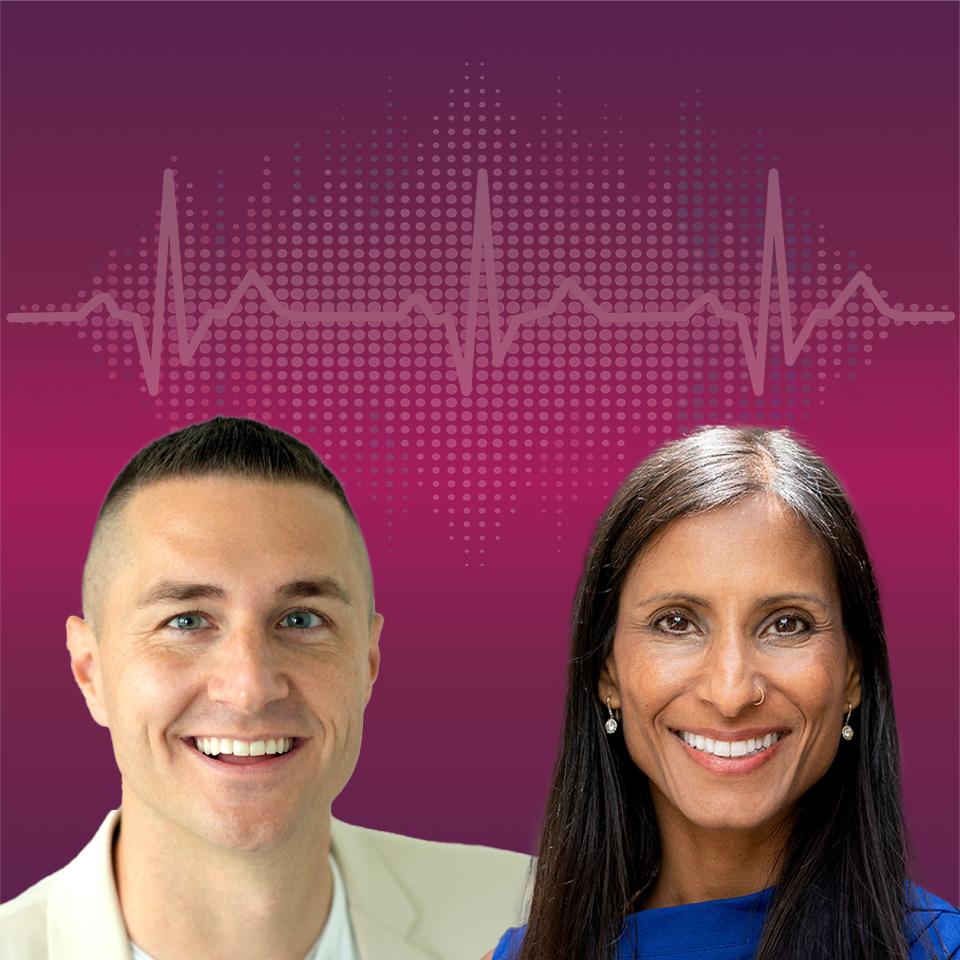
ACCELERATING HEALTH EQUITY
Season 4: Episode 10 Accelerating Health Equity With Technology and Trust
Health equity is a hot topic in health care, and Dr. Pooja Mittal speaks about key success components, including the importance of trust, technology and strong relationships with communities.
Bringing health stakeholders and community members together is crucial to building trust and providing culturally relevant care that drives better health outcomes.
From a young age, Mittal realized that health care is not equitable, and challenging environmental conditions cause higher disease rates.
With a mission to reduce health disparities, Mittal became a physician and Chief Health Equity Officer at Health Net.
She believes technology is key to making care more equitable and supporting patients from historically disadvantaged communities, as it enables access to data to better understand needs, access to telehealth, enabling patients to receive care remotely and access to culturally sensitive technology, supporting unique needs.
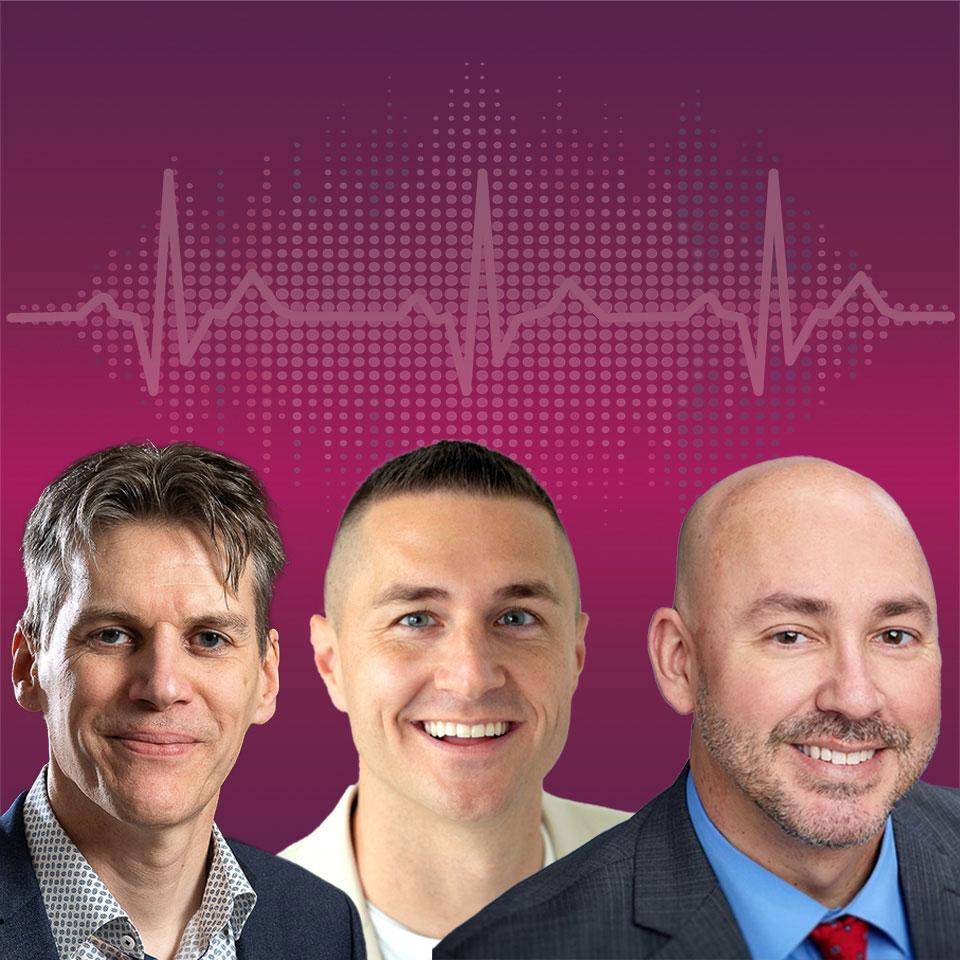
SAS + OPEN SOURCE
Season 4: Episode 9 SAS opens up about open source in life sciences
There’s no such thing as a free lunch, but there are many benefits to a balanced diet.
That’s SAS’ philosophy in embracing and extending open source, according to life sciences leaders Mark Lambrecht and Matt Becker on this episode of the Health Pulse Podcast.
To keep up with the staggering pace of change, life sciences organizations need cutting-edge analytics and the flexibility to use different programming languages.
Tune in for a candid conversation on the pros and cons of open source and commercial software and the importance of the statistical computing environment (SCE) in clinical research.
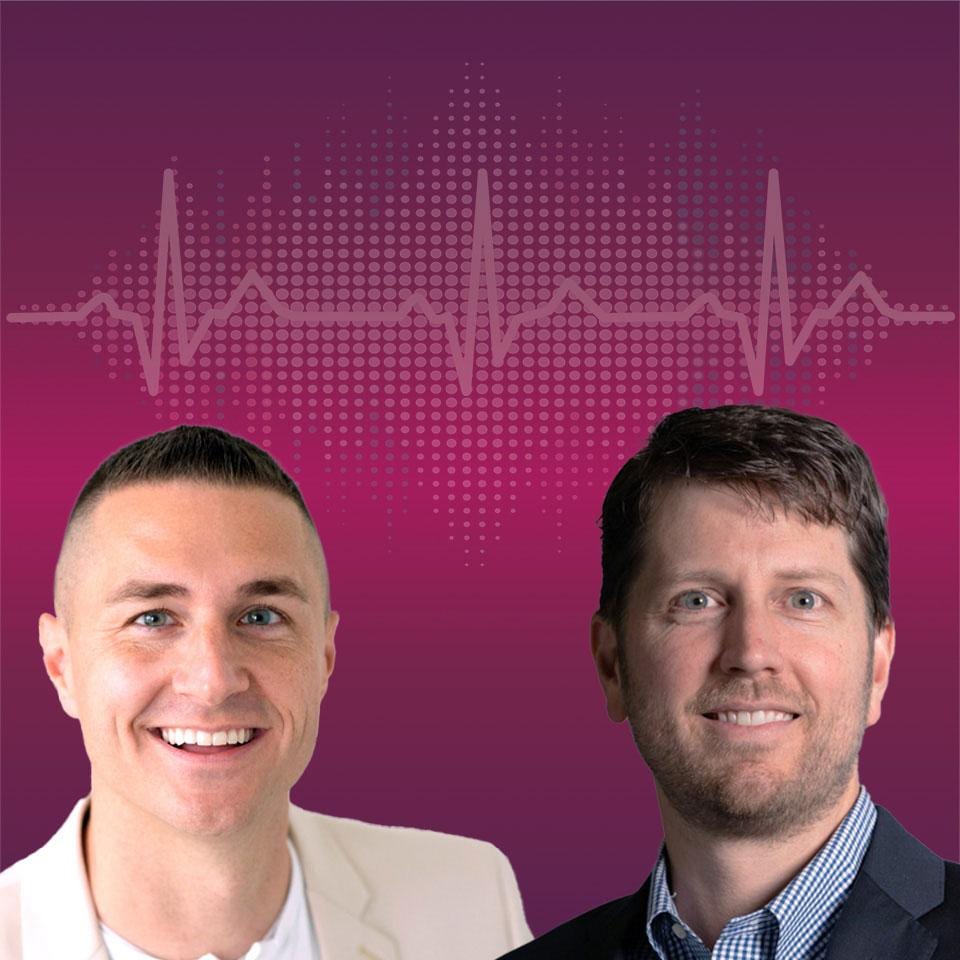
MORE THAN A TEST
Season 4: Episode 8 The Impact of Diagnostics on Health Care
Bryan Vaughn is passionate about bending the cost curve in health care.
As Senior Vice President of Hospitals and Health Systems at Labcorp, he focuses on diagnostics in delivering better, more affordable care.
In this episode, Vaughn notes that impactful partnerships across the health care ecosystem help reduce the cost of critical diagnostics, creating a win for all stakeholders.
When it comes to analytics, he is excited to see Labcorp’s wealth of health data empowering and informing patients and their doctors today – as well as the potential for predictive analytics and AI to improve health outcomes in the future.
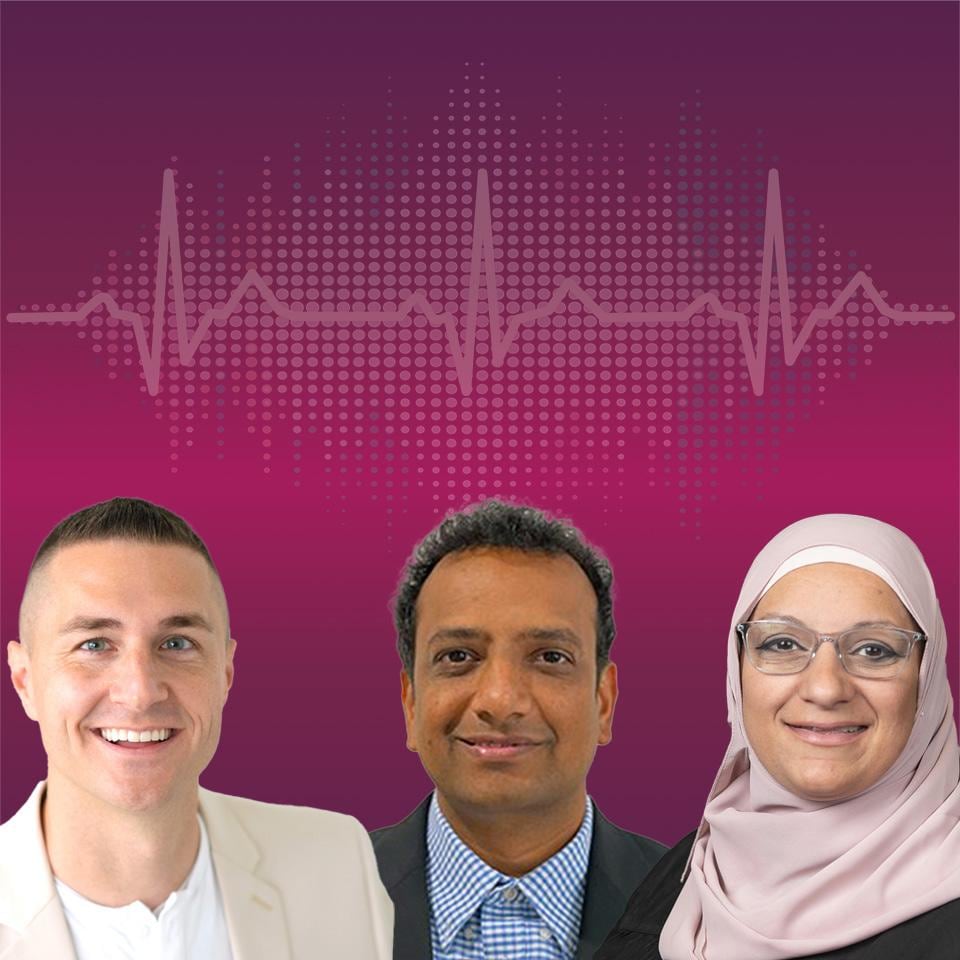
REAL WORLD HEALTH
Season 4: Episode 7 Real-World Data and the Bigger Picture of Health
Krishna Tangirala is an expert at uncovering insights about pharmaceutical products in the real world. He is Head of Data Analytics and Director of Field Outcomes Research at Organon Pharmaceuticals.
In the first part of this episode, Tangirala talks to Alex about how stakeholders use health economics and outcomes research throughout the pharmaceutical life cycle to better understand the value, potential and safety of drug products. He also discusses new and emerging applications for real-world data (RWD) in pharma, including external control arms and digital twins and the potential for technology to solve challenges around managing, analyzing and visualizing data insights from RWD.
Next, Sherrine Eid, Global Lead for Real-World Evidence and Epidemiologist at SAS, joins Alex. Eid is passionate about mathematically modeling disease patterns and finding ways to intervene and improve outcomes. For her, it’s all about using the best tools at her disposal to help people live their healthiest, best lives.
Eid discusses the role of RWD and connected devices to enable personalized medicine and shares her perspective on the value of personalized health information as a diabetes patient.
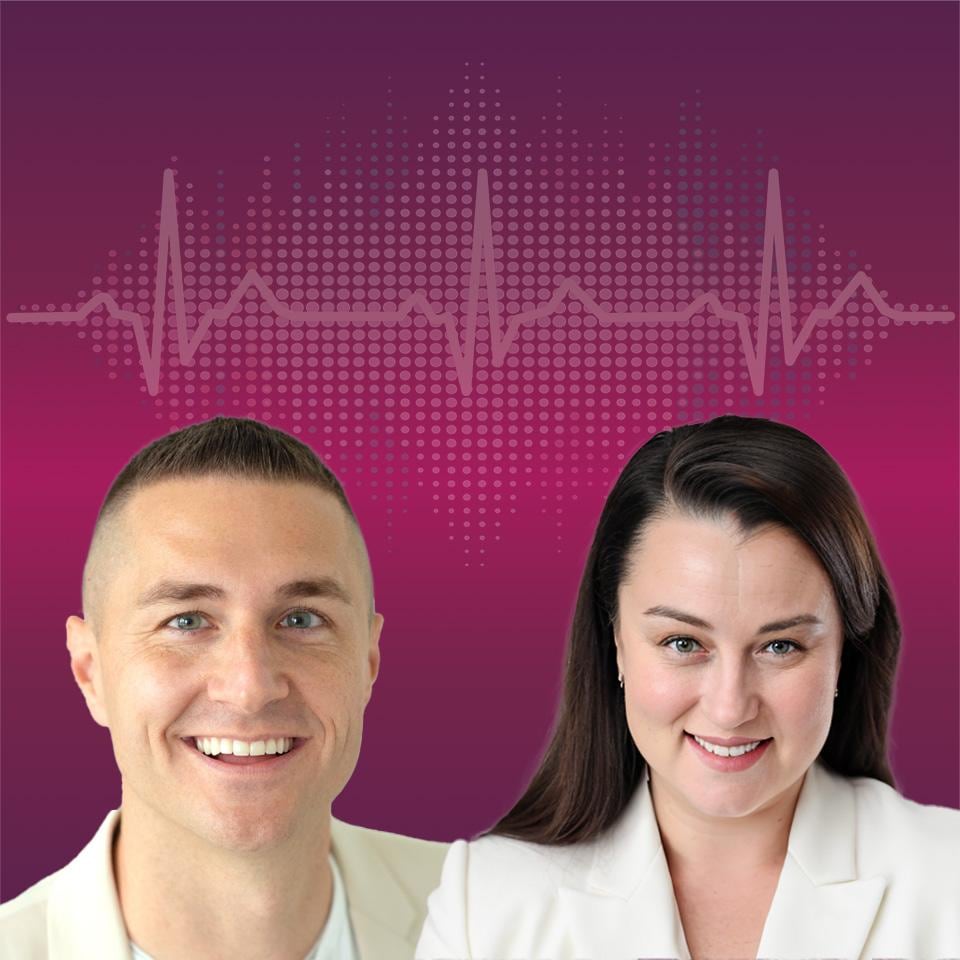
PUBLIC HEALTH MODERNIZATION
Season 4: Episode 6 Modernizing public health with population health analytics
Dr. Iulia Vann, Public Health Director in Guildford County, NC, is passionate about public health and data-driven decision making.
On this episode of the Health Pulse Podcast, Vann discusses the importance of prevention, the public health response to the COVID-19 pandemic, lessons learned about closing gaps in data and analytics and resiliency.
Vann explains that effective public health strategies include strong relationships with local partners, communication and planning for health equity measures, like putting 40% of vaccines aside for historically marginalized communities.
Data modernization is another crucial element for health organizations to serve their communities better. Requiring agencies to integrate data from different systems and ensuring the data is transparent and reliable is essential in making data-driven decisions as a public health agency.
She explains how Guilford County partnered with SAS to create dashboards and monitor program performance and public health areas of focus, such as chronic diseases, cancer and environmental health, to make the best possible decisions for their community.
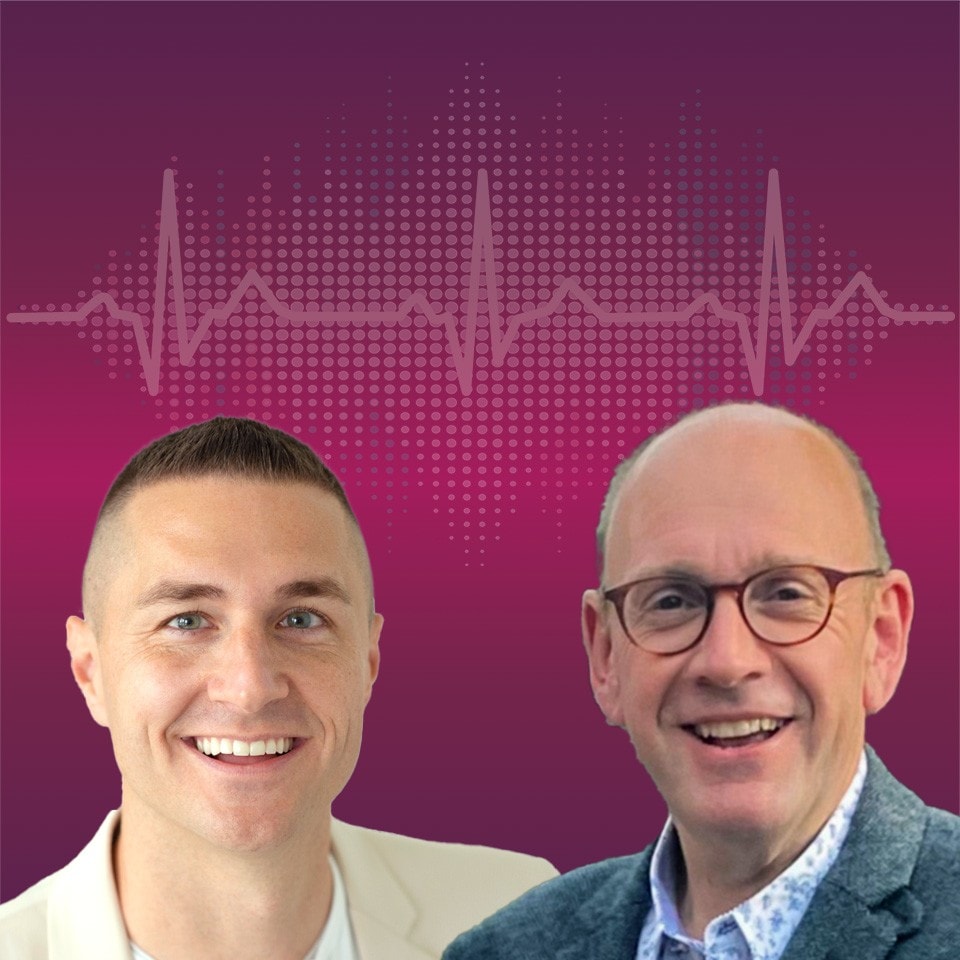
THE AI ASSIST
Season 4: Episode 5 The promise of AI in pharmaceutical manufacturing
SAS’s Andy Bayliss works with life sciences manufacturers, applying AI and machine learning to improve their processes at scale.
On this episode of the Health Pulse Podcast, he tells Alex that pharmaceutical manufacturers are experts at reliably delivering high-quality products.
They must be because it’s a highly regulated industry with a patient at the end of every product.
The opportunity to utilize technology energizes Bayliss. Technology like sensors and computer vision allows continuous monitoring to spot trends and potential deviations earlier in pharmaceutical manufacturing.
It’s about giving the human expert additional insight to create meaningful action.
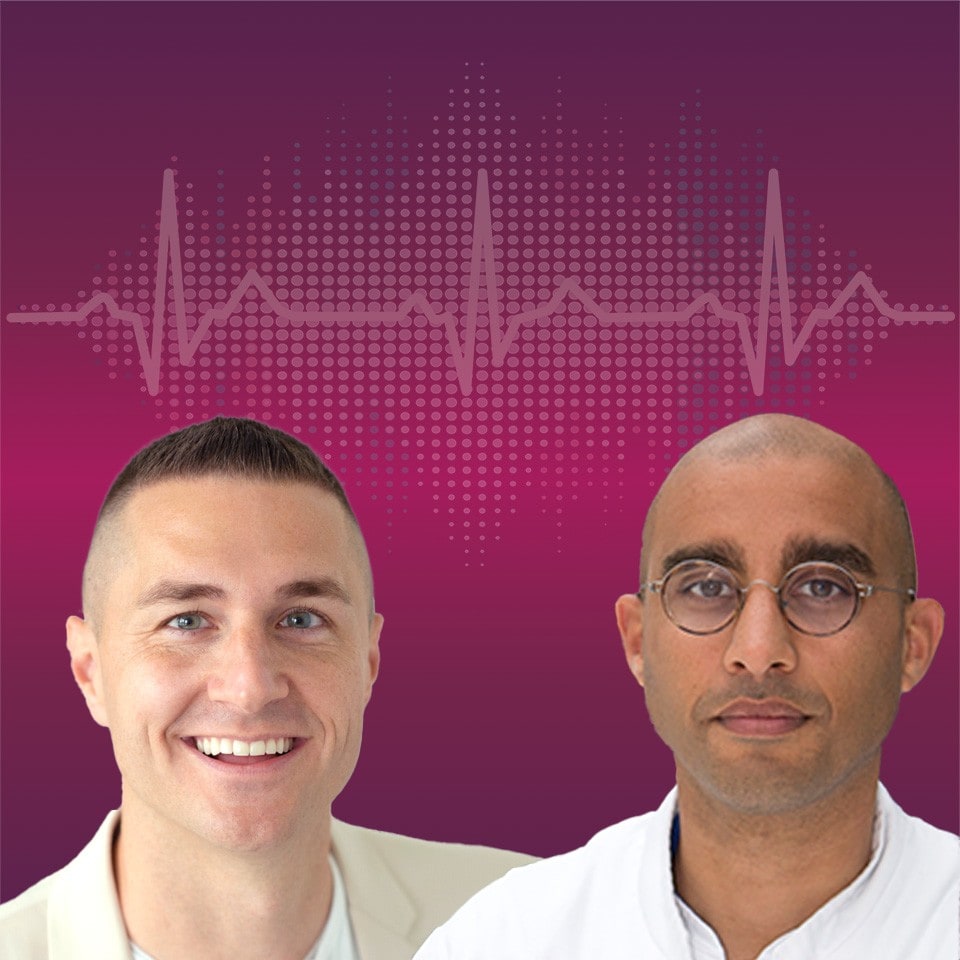
ETHICAL AI IN HEALTH CARE
Season 4: Episode 4 Is ethical AI the future of health care?
Dr. Michel van Genderen, physician, AI leader and founder of the Datahub at Erasmus Medical Center in the Netherlands, shares his passion for ethical AI in hospitals.
Could AI be a game-changer for the health care industry?
Genderen thinks so and explains the two biggest global health care challenges – the shortage of personnel and an increasing health care demand.
He believes trustworthy AI could alleviate these pressures and solve clinical challenges faster. For example, Erasmus Medical Center developed an AI model used in the intensive care unit that decreases the administrative workload for nurses.
Using AI in a responsible, ethical and sustainable manner is crucial to its adoption in clinical settings so that health care professionals trust AI when they use it at the bedside.
To develop and deploy AI models in clinical settings, a group of multidisciplinary teams comes together, including data scientists, data engineers, physicians, nurses, patients and more, which is the remit of the Datahub at Erasmus Medical Center.
Adhering to ethical guidelines is crucial when teams develop models, monitor their performance and adopt them in clinical or operational settings. Genderen is optimistic that all industries will be able to benefit from AI if decisions made with analytics and AI are ethical, trustworthy, explainable and fair.
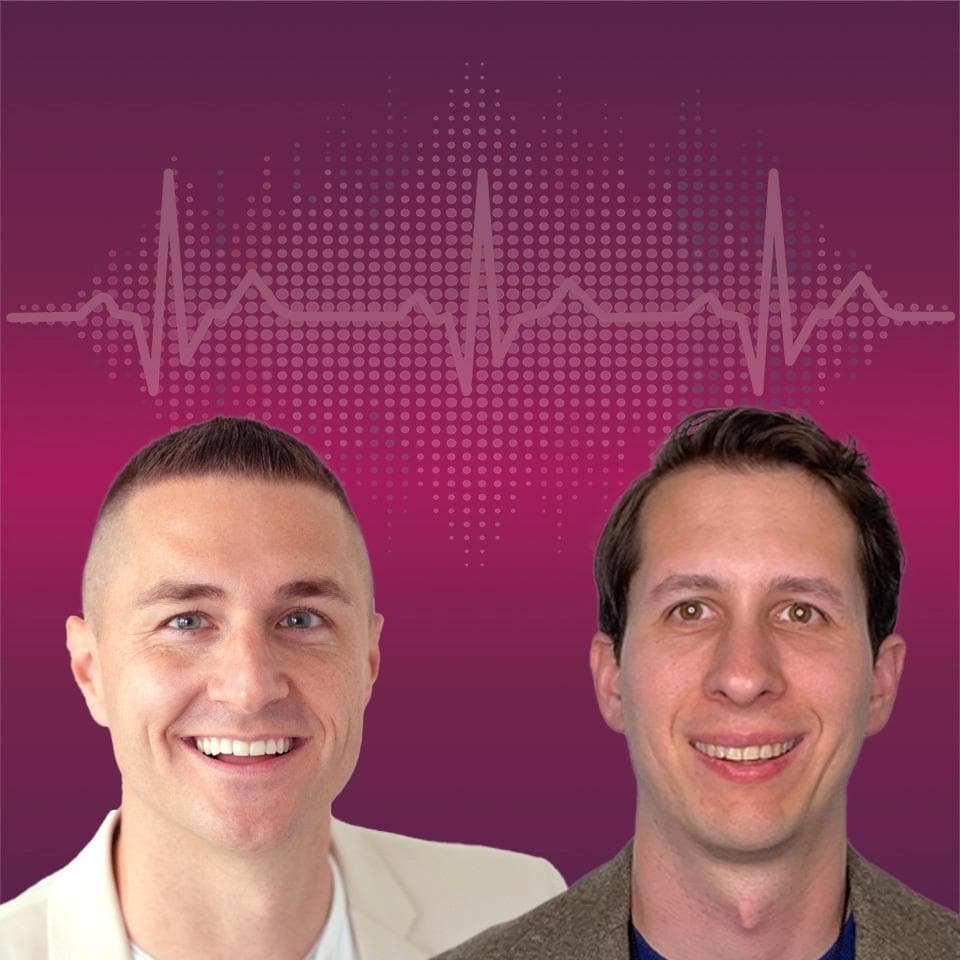
DATA ELASTICITY FOR THE WIN
Season 4: Episode 3 Balancing data, analysis and speed in business decision making
Steven Lehmann is passionate about the impact of data science in business.
He is Head of Data Science and Analytics Strategy for Johnson & Johnson in EMEA.
He also wrote the book Digital Jackpot on what it really takes to make data-driven decisions that matter. Hint, the answer often isn’t more data.
In this episode of the Health Pulse Podcast, Lehmann talks with Alex about the importance of telling the right story with data so people will listen.
He introduces the concept of data elasticity in finding the balance between enough data and the speed you need to make business decisions to solve real-world problems.
Data elasticity lets data scientists and business leaders make strong recommendations with imperfect data, knowing their recommendations would still be within a reasonable margin of error.
He reminds us that these are excellent tools when it comes to the explosion of data, AI and advanced analytics.
Still, the individuals and organizations who can make the best use of them to drive impact will ultimately succeed.
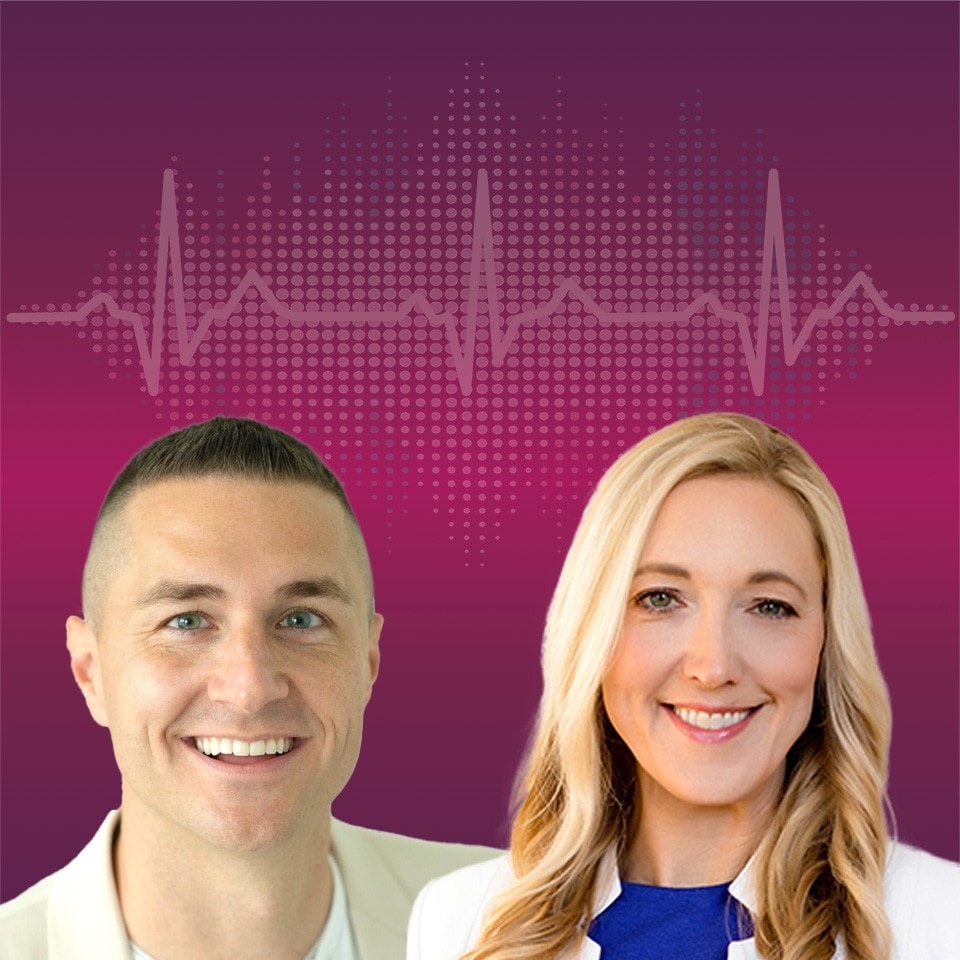
BIRD FLU: THE NEXT PANDEMIC?
Season 4: Episode 2 Bird flu: The next pandemic?
Dr. Meg Schaeffer, an Epidemiologist and Public Health Advisor at SAS and an elite athlete and champion for health equity, is a perfect example of what passion for public health looks like.
In this episode, Schaeffer considers the evolution of bird flu and explains that North America, Europe, Asia and some African countries are in the midst of the largest bird flu outbreak, with millions of birds culled.
Monitoring outbreaks is crucial to predict the future of health care and to prevent a human pandemic.
She also talks about health equity and the importance of combining quantitative with qualitative data to understand population needs and challenges. This helps design effective programs that reduce inequities. There is currently a lack of qualitative data, leading to resource misalignments, Schaeffer explains.
Combining interviews, focus groups and text data with advanced analytics could be the key to currently overlooked insights. Despite challenges the health care industry is facing, being an elite, world-ranked triathlete has taught Schaeffer there is always a way – that temporary discomfort leads to success.
She is optimistic about the future of health care with the dedication of the public health workforce and cutting-edge software, supporting decision making processes.
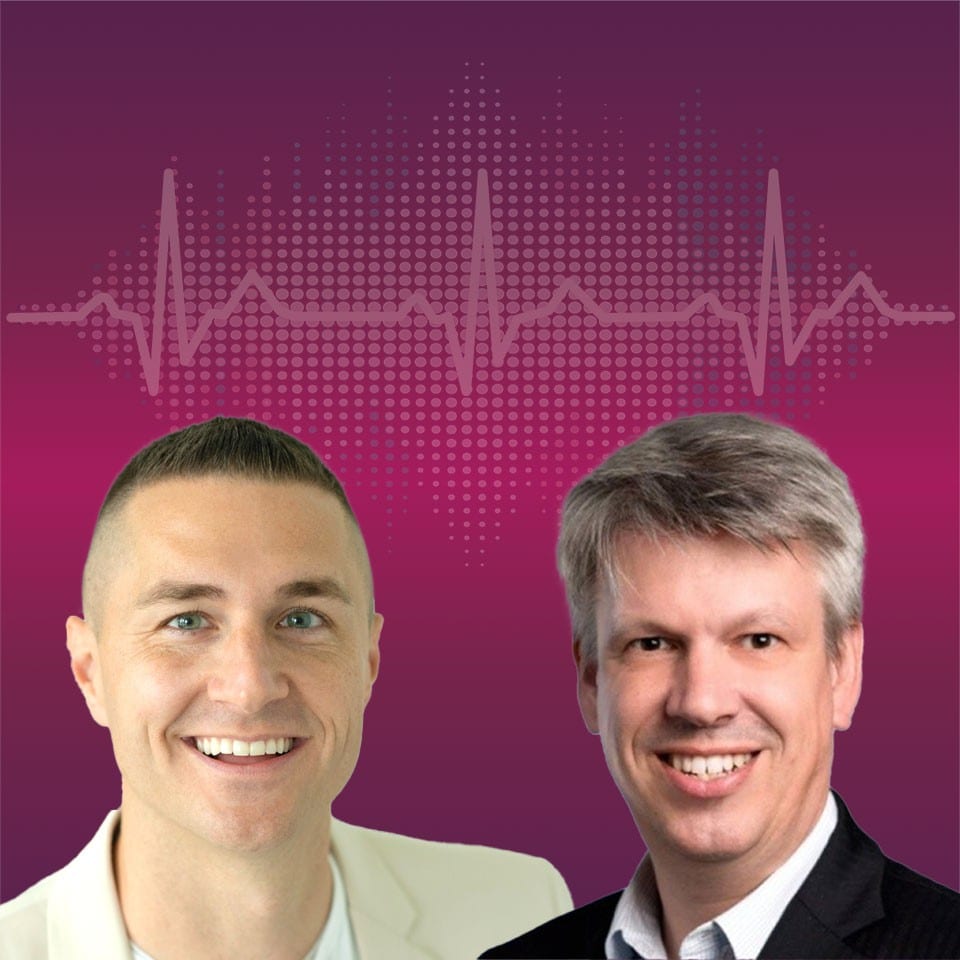
STATS AGAINST CANCER
Season 4: Episode 1 The right tools for the right questions to fight cancer
As Vice President and Head of Oncology Statistics and Data Management at Bayer, Dr. Richardus Vonk wants to see cancer become a manageable disease in his lifetime.
With as many as one in two people getting cancer at some point, the goal to better treat and eventually prevent and cure cancer is incredibly impactful.
On this episode of the Health Pulse Podcast, Vonk sits down with host Alex Maiersperger to discuss data, analytics, AI and automation in advancing cancer research and drug development.
Vonk explains that AI plays an essential role in early cancer detection but has yet to find widespread adoption in drug development.
Automation is critical because it frees time at the end of clinical trials to explore the science and uncover valuable insights to inform care. Regarding analytics software, he thinks the future is a mix of commercial and open source.
What’s more important, according to Vonk, is expanding access and data sharing while protecting patient privacy and using the right tools to answer the right questions.
Enjoy full access to episodes from our earlier seasons here.
*All presentations represent the opinions of the presenter and do not represent the position or the opinion of SAS.





